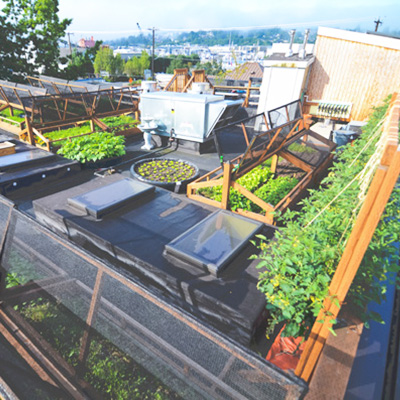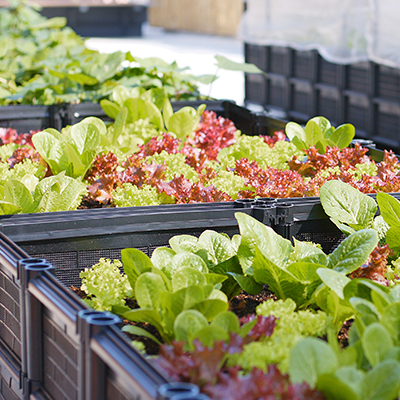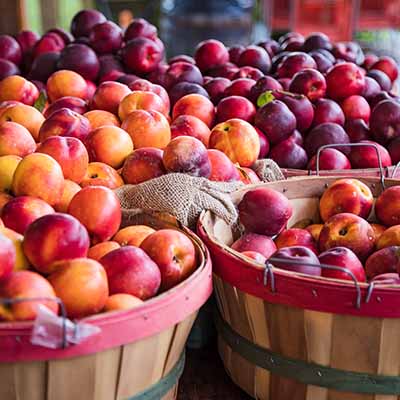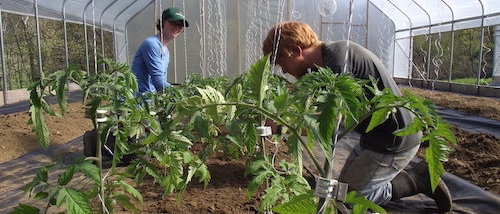I have a problem with gardening and farming books that start with "how to." I glance through them and think about how the best laid plans can go awry, messing with your goals of high yields, profit, and fun. I remember the time when the most perfectly planted and maintained crop was felled by an overnight infestation of blister beetles; the spring where the summer heat started so early my tomato transplants burned themselves to death on the edges of the black plastic mulch and on and on. "How to" systems are useful, but nature can really mess with your head and your plans.
What I most love about farming is its specificity- the way that each farmer has to adapt and accommodate and problem solve in working with their own unique ecosystem, microclimate, customer base, and personality. So, even though this article is titled "How to Start an Urban Farm", my intent isn't to offer anything remotely resembling a formula for success, but to raise up some of the steps along the way a person who wants to become an urban farmer might need, or will need, to address.
I want to say also that even though I started farming when I lived in Boston, and have visited urban ag projects in a variety of places, my most direct experiences with starting urban farms have been here in Kansas City. So my "how to" list will inevitably be rooted in a particular set of issues and experiences in a particular kind of place. Most of the issues are similar, Kansas City is a city much like hundreds of other cities across the country. Some of the issues will be different, particularly in relationship to communities where there is much higher development pressure, property taxes, and more density. So, take what I offer and adapt it for your own community.
Unless you want to do hydroponics or have one of those marvelous multi-story greenhouses, finding a site is your first step!
Start off with an attitude of openness to the whole question of land. You may have an idea in your head of how you'd like to own your place, how you'd like it to look, how you'd like it to run, but the city is a complex eco-system. Your success as a farmer will in no small part result from how well you can interact with and adapt to forces and ideas outside of your own head and heart.
So, start out with ideas and dreams, but listen to the city, listen to its residents, pay attention to its rules and habits. You may very well end up with something that looks different than what you thought you wanted, but is, in fact, much better.
Now, look for open space.
Drive around the city looking at land that doesn't have buildings on it. Look at small parcels, look at larger parcels. Look at empty lots, city parks, green, grassy lawns maintained by businesses, hospitals, and schools. Look overhead and find the utility wires; there'll be wide swaths of land underneath them that are unused. Look at those blocks where half the houses are gone. Train your eye to notice empty space, most of us drive through the city and see what is "there" not what "isn't there."
When you find space that has potential, pay attention to the soil, what kind of condition is it in? Is there lush growth on it? Are there bare spots where nothing is growing? Your goal is to grow healthy plants that are good to eat; does the current plant life there look reasonably healthy? Most urban soil will require some degree of remediation (mostly adding as much organic matter as you can possibly find and haul), but it would be nice to start with soil that isn't a complete mess.
Look for trees or buildings nearby that might cast a shadow over your crops, question where your water might come from, where you might put a building with electrical for a cooler or just for tool storage. Look at the nearby businesses and homes. Is there a possibility of chemical contamination? For example, if there is a dry cleaners nearby or an autobody detailing shop, that could be problematic. Testing for chemicals is expensive; remediation could be costly or long-term. It might be wiser to write off a piece of land that is dubious and spend your time and energy on a more promising site.
Once you feel like you have a pretty good idea of what land is available and at least initially desirable, narrow your list down. You can do this based on gut instincts: "I just like how that land feels, the slope of it to the east, the view of downtown." You'll be spending a lot of time there, it is important that the essential feel of a place is comfortable.
You should take into account your understanding of your own capacities and inclinations: "As much as it would be a good thing, I don't think I could work with parks and recreation to start a farm on city-owned land. I've never been good at dealing with bureaucracy." Will this site require skills in collaboration, and are you enthusiastic about working that way?
You can do it based on a clarity about your own mission: "I think it is really important that the next generation learn about healthy food. If I can find a way to grow on that land next to the school, I know I'll be able to grow vegetables, sell them, and make a difference in the lives of those kids." Many urban farmers have missions that are multi-layered. They want to grow good vegetables, they want to make some money, but they choose to farm in the city because they care about the life of the city. They care about the kids in the neighborhood, they have a special tenderness for the older residents, they want their neighborhood to be more beautiful. It is a good thing to know what your values are and know that your farm and your farm's activities will reflect those values.
Find out who owns the several sites you are looking at and talk to them. You can generally find this out online by going to your county or municipal web site and looking up Real Property. Some cities make it easier than others; you can also just call the central number and tell them you are looking for who owns the lot at XXX and how would you find that out?
Once you know who owns the land, you can decide how to proceed from there. If the land is owned by a business or a non-profit or an individual, call them up and talk to them. If the land is owned by the city for tax foreclosure, find out if the land is up for sale. Be prepared to share your plan and to present yourself as someone with experience and te capacity to do what you say.
Once you are more serious about a couple of sites, talk to the other stakeholders in the community.
The joy and challenge of farming in the city is that you are pretty much guaranteed a high level of interaction with other people and powers-that-be. Neighborhood associations will have opinions about what you do. People will stop by and want to chat. Nearby businesses will evaluate your farm with an eye to "Does this farm help or hurt my own business?"
So, before you plonk down your money and buy a lot or sign a lease agreement, talk to the people who might have a stake in what you are want to do there. Go doorknocking and chat up the neighbors "Hi, I'm so-and-so and I'm thinking about starting a garden on that empty lot down the street. I want to grow vegetables and sell them at farmers' markets. What would you think about having a garden down there?" Ask them what they know about the history of the lot. If you end up growing there, these neighbors will become part of your network. They are the people who hopefully will pick up the phone and call you if they see teenagers climbing over your fence at night with a six pack. They are the people who you want on your side if your weeds are getting out of control and you just had a day-job crisis and you know you can't get to the weeds until next weekend. They are, potentially, customers, volunteer labor, and part of your PR team. And, hopefully, they are people who'll you grow to care about and love.
Katherine Kelly is Executive Director/Farmer of the Kansas City Center for Urban Agriculture. She can be reached at [email protected].
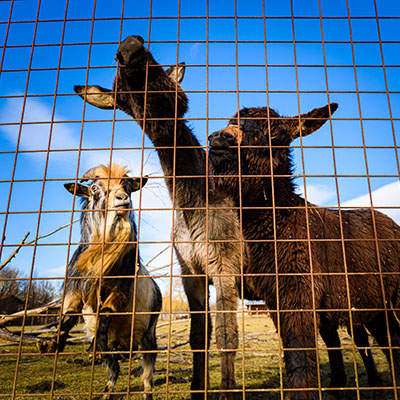
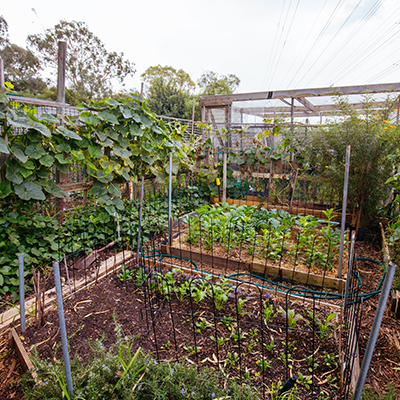
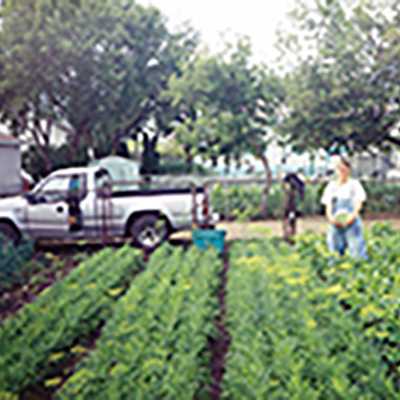
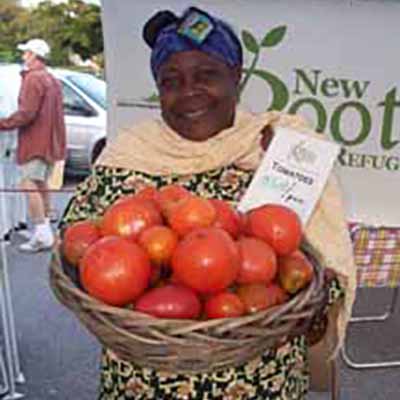
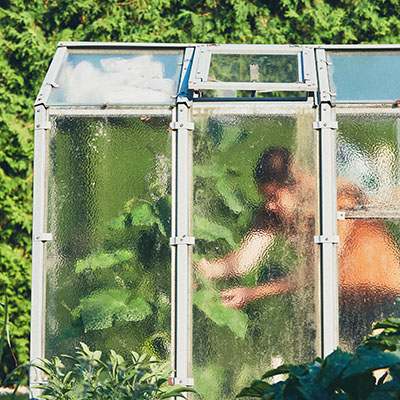
.png)

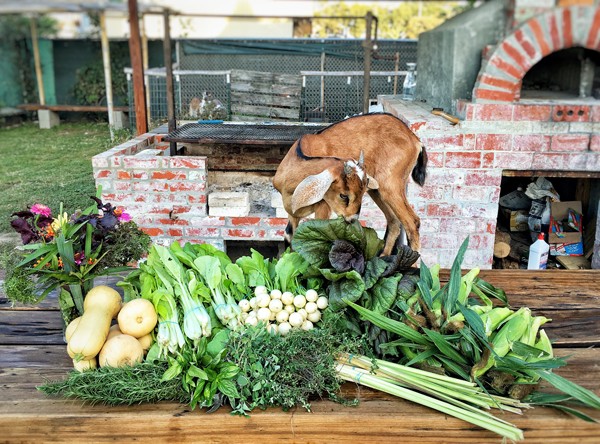 This is the true story of an urban farm started in New Orleans, Louisiana, on land abandoned after hurricane Katrina, as told by its resident goat to the author. There are lots of practical details and good ideas for farms both in cities and in the country, so read on.
This is the true story of an urban farm started in New Orleans, Louisiana, on land abandoned after hurricane Katrina, as told by its resident goat to the author. There are lots of practical details and good ideas for farms both in cities and in the country, so read on.